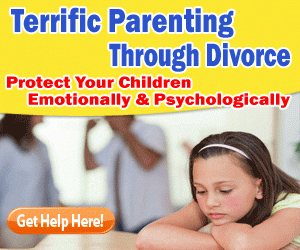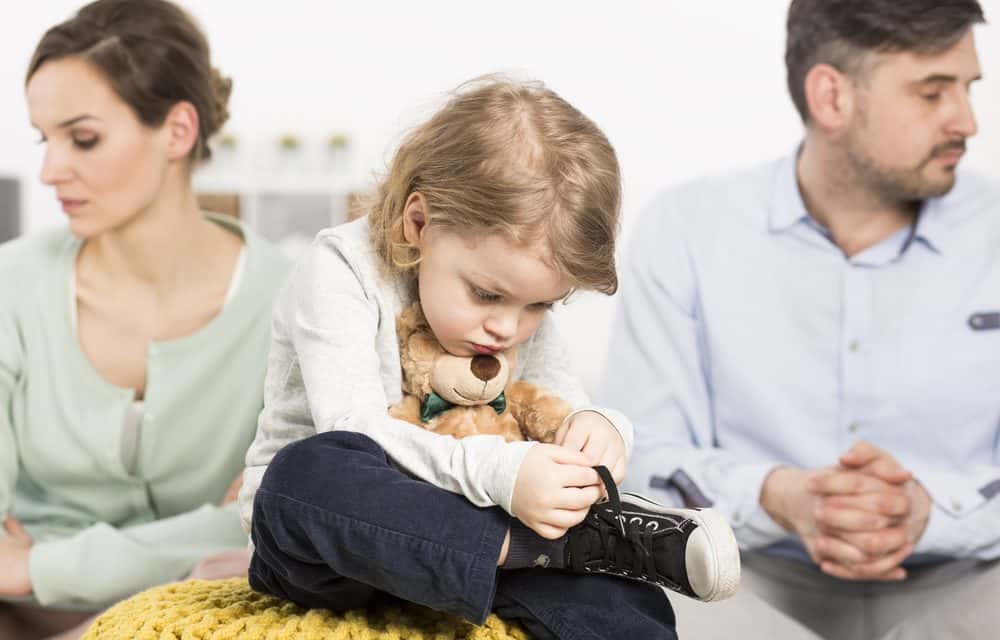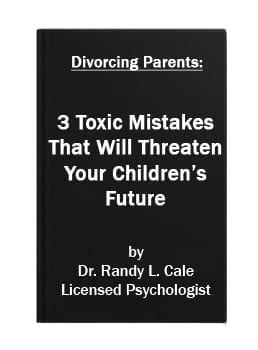 Fear words strike fear in the hearts of parents like ‘we are getting a divorce.” Parents worry about how to help their children going through the divorce.
Fear words strike fear in the hearts of parents like ‘we are getting a divorce.” Parents worry about how to help their children going through the divorce.
Of course, divorce is often difficult. Divorce is often overwhelming for adults and children. Divorce is among the most painful and challenging experiences many families will encounter. Most parents going through a separation or Yet, while we all fear and worry for our children going through divorce, the future is truly in our hands! Help for handling a separation or divorce is available.
Studies consistently show that divorce tends to leave many parents with serious compromises in their parenting. Consistent parents become inconsistent. Decisions that used to be easy become hard. Emotions turn intense at the drop of a hat, and kids sometimes dance on eggshells around parents.
And children are clearly affected, especially when the divorce is handled poorly. The challenging child has become unbearable. The studious child refuses to do her homework. The once cooperative siblings are ‘at it’ all the time. The teen now wants to be in your business all the time.
Add to that…the respectful, well behaved pre-adolescent changes over night, and is now combative, oppositional, and argumentative… and you are at your wits end!
The solution is not to surrender to your emotions, but instead to find a path out of the deepening anger and pain. Here are three mistakes that many parents make, that are correctable.
Three Errors In Parenting After Divorce
Obsessing On The Shortcomings Of The Other Parent.
This is number one because so many divorcing parents do this. Many times, there are blunders being made ‘on the other side of the fence.’ And ultimately, we can’t do anything about it.
And that’s why it is essential to correct this damaging error.. The more we invest our energy and attention on things we can’t control…the more the depressed, angry and overwhelmed we become.
The energy invested rarely pays dividends. Why? Because seldom is the other parent eager to hear your opinions on things, or motivated to change based on your wishes..
But more importantly, every moment we spend focused ‘over there’ is a moment we surrender our peace and happiness, and also neglect our parenting growth.
Few divorcing parents like to hear this, as there is an irresistible tendency to get hooked on discussions of what the other parent needs to do.
Here’s the Problem: Such focus in complaining about the ex-partner doesn’t allow the ‘complainer’ to accept full responsibility for doing their best.
Bottom line: Stop focusing over there…and turn your attention to everything you can do to be the best parent possible. That’s where you will get return for your emotional investment.
Trying To “Secure” Parent-Child Relationships With Soft Limits
 This mistake is also quite common, and frequently divorcing parents believe that there is justification: “The divorce is tough enough….so I will go easy on him/her.”
This mistake is also quite common, and frequently divorcing parents believe that there is justification: “The divorce is tough enough….so I will go easy on him/her.”
This is dead wrong. Kids need structure and consistency, and every study of divorce that has looked at this issue finds that these children struggle more than children who have parents who remain firm, clear and consistent. (Learn more about how to maintain firm limits in my downloadable book, Terrific Parenting Through Divorce!)
It is easy to want to buy more, give in more often and get lax on bedtime or video games and the like. Of course, most children will push you for this. But their desires are not allies. In fact, that is often the case for most of us. The things we typically crave for immediate gratification are ultimately lacking in long term value, so our children actually need us to say ‘no.’ The limits teach them habits, that will serve them long after the pain of the divorce has passed.
Bringing Children Into Adult Content About The Divorce.
I often get asked, “Is it okay to answer adult-like questions with grown-up answers?
No. It’s not okay to speak about adult issues. There are many bright, capable and quite precocious children who will want to engage you in such ‘mature’ conversations.
You must resist. Why they may appear to have depth of insight, all of the research suggests that their capacity to see things fully at an adult level is very limited—especially when it comes to understanding the complexity of relationships’ and where they go wrong.
More importantly, it is impossible for even the best intentioned parent to keep their biases out of such discussions. Your ‘truth’ is inevitably loaded with biases that you can’t even hide, even if you want to!
The topics should never turn to adult level conversations, such as who is responsible for the divorce, or why the divorce happened (filling in adult details), or how mom/dad is being stupid/wrong/evil. Even comments about money, moral behavior or the other parents personal habits usually fall into adult perspectives and play a biasing role.
It’s not fair to your child. It hurts them, in the long run. And, the allegiance gained from such conversations is not in your child’s best interest.
Do your best to correct these three errors, and you are on your way to getting back on track!
You can also read more on this topic here!
If you are interested in the complete toolbox on how to help your children through the struggles of a separation or divorce, please check out my Terrific Parenting Through Divorce Guide here!


 ** Please double check for accuracy. Your privacy is SAFE. We will NEVER sell/rent/give away your information.
** Please double check for accuracy. Your privacy is SAFE. We will NEVER sell/rent/give away your information.













